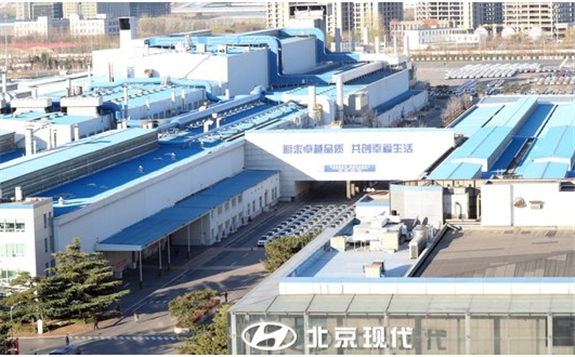Hyundai Motor Co. is seeking to sell off the site of its first plant in Beijing to a district government of the city, Chinese media outlets reported on May 30.

If the plant is sold, Hyundai Motor’s production capacity in China will fall by 20 percent from 1.5 million units to 1.2 million units per year.
Chinese authorities are reportedly considering using the site as an electric vehicle plant for startup Li Xiang. The Chinese company plans to invest six billion yuan to convert Hyundai Motor's plant into an electric vehicle production facility by the end of 2022.
When Hyundai Motor first entered China in 2001, it established the first plant in Beijing in collaboration with local company BAIC. It reached one million units in production and one million units in sales per year in 10 years, but its utilization rate fell below 50 percent after China's retaliation against the Korean government’s deployment of the Terminal High Altitude Area Defense (THAAD) system in South Korea in 2017. The plant stopped operating in April 2019 as the Chinese government's regulations on the urban environment strengthened.
Hyundai Motor has been strategically scaling back its production in China recently. It is completely revising its strategy as its previous approach of selling a large volume of small cars no longer works in China. Hyundai Motor and Kia sold only 441,000 units and 224,000 units in China in 2020, respectively. Instead of focusing on small cars and sedans as it did in the past, Hyundai Motor Group is rebuilding its brand by putting the electric vehicle IONIQ 5 and the Genesis front and center.